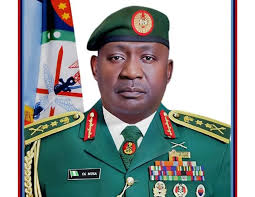Nigeria’s Chief of Defence Staff, General Christopher Musa, has defended the country’s military operations against insurgents and armed criminal gangs, saying the armed forces are doing everything possible to avoid civilian casualties despite the complexities of the conflict.
Speaking to journalists in Abuja on Wednesday, General Musa explained that the military has increasingly relied on airstrikes to counter the rising threat of militias and insurgent groups in the northern and central parts of the country. These regions have been plagued by insecurity, especially in the northwest, where banditry and kidnappings remain widespread.
He acknowledged that in some cases, civilians had been mistakenly targeted during operations against armed gangs, but assured that such incidents are investigated thoroughly. He stressed that these mistakes are not intentional, noting that the military takes measures to prevent civilian harm, even when it means losing tactical advantages.
“We are made to look as if we are committing the worst atrocities ever, but I can assure you that we are doing the best we can. We respect human rights and value civilian lives,” Musa said. “We often abort operations to avoid civilian casualties … this has, in part, prolonged the conflict.”
General Musa also called for a review of international laws governing armed conflict, arguing that the current rules place state security forces at a disadvantage while leaving non-state actors — including insurgents and armed criminals — unchecked. “These laws restrict the actions of the military while those who kill at will face no such limitations,” he stated.
His remarks come amid growing scrutiny from human rights organisations, which have accused the Nigerian military of excessive use of force in counterinsurgency operations. Critics argue that airstrikes in populated areas have sometimes caused unnecessary loss of life and property.
However, within Nigeria’s armed forces, there is frustration over what they see as unfair comparisons with militaries in more developed countries. Some officers believe international observers fail to recognise the unique challenges of fighting insurgents and criminal gangs who deliberately embed themselves among civilians, making it harder to distinguish between combatants and non-combatants.
General Musa pointed out that Nigerian military personnel undergo continuous training on human rights and international humanitarian law, both within the country and abroad. He said this is part of ongoing efforts to improve operational standards and ensure compliance with global norms.
Security experts say the challenges facing Nigeria’s military are complex. Insurgents in the northeast, such as Boko Haram and the Islamic State West Africa Province (ISWAP), continue to launch attacks despite years of military campaigns. In the northwest and north-central states, heavily armed gangs — often referred to as bandits — engage in mass abductions, village raids, and cattle rustling. The combination of these threats has stretched the military’s resources and increased reliance on airpower.
While human rights advocates maintain that civilian protection should remain a priority, some analysts argue that the Nigerian military is operating in one of the most difficult combat environments in the world, where the lines between insurgents and civilians are often blurred.
General Musa reaffirmed the armed forces’ commitment to upholding human rights while ensuring national security. He urged Nigerians to support the military’s efforts and understand the operational realities of confronting insurgents and criminal gangs.
